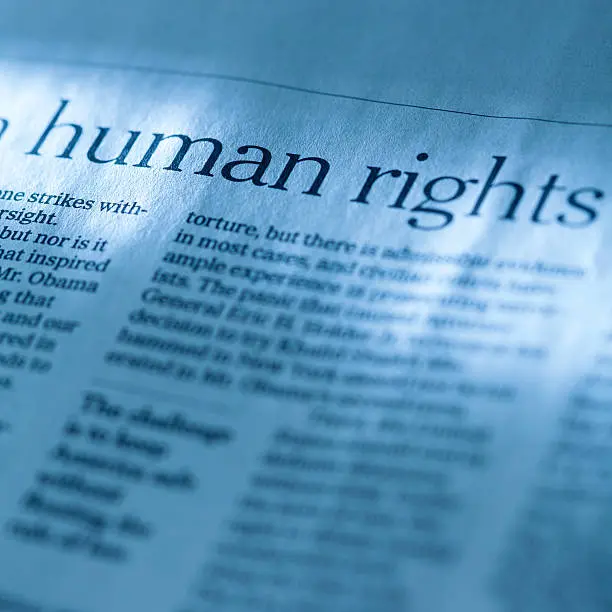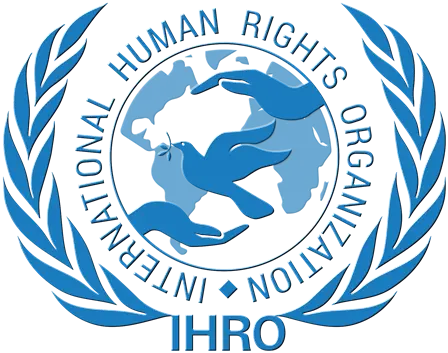The fundamental role of international coalitions in the promotion and defense of human rights
Let's join us on this interesting journey to understand the importance of international coalitions in safeguarding and promoting human rights. This is a world where cooperation, impact, and global transformation converge. Are you ready to delve deeper into this fascinating and significant topic of joint action in defense of human rights? Continue reading and learn more about this essential topic for today's world.
Introduction
The concept of international coalitions in the promotion and protection of human rights encompasses the formation of strategic alliances between organizations, governments, and non-governmental entities worldwide. Their central purpose is to foster respect, promotion, and safeguarding of human rights in every corner of the planet. These coalitions aim to generate synergies and effective collaborations that address common challenges in this area, achieving a much broader and deeper impact than would be possible acting in isolation.
These alliances generally emerge to address specific issues, such as the abolition of the death penalty, the protection of the rights of women and girls, the eradication of racial discrimination, or the combating of other forms of human rights violations. Through international cooperation, participating entities pool diverse resources, knowledge, and experiences to carry out campaigns, research, advocacy, and strategic litigation that promote significant changes both locally and globally.
Within this framework, international coalitions play a fundamental role in advancing a global human rights agenda. Their ability to coordinate efforts across multiple stakeholders significantly strengthens the protection of fundamental freedoms, contributing to building a more just and equitable world for all.
The importance of international coalitions in the defense of human rights is evident in their ability to enhance the reach and effectiveness of organizations and activists working in this field globally. These alliances make it possible to amplify the voices of defenders, increase pressure on key actors, and generate a deeper impact on the promotion and safeguarding of fundamental rights. By operating together, the members of these coalitions are able to influence policies and practices both within and outside their borders, addressing complex problems that no country could resolve in isolation.
Likewise, these international networks foster the exchange of experiences, knowledge, and strategies across diverse cultural and political contexts, enriching approaches to the protection of human rights. Furthermore, they enable more efficient mobilization of technical and financial resources, a crucial aspect in responding to humanitarian crises, armed conflicts, or systematic human rights violations in different regions.
The true value of these alliances lies in their ability to generate significant collective impact, influence global political agendas, share strategic tools and resources, and address transnational challenges that compromise the comprehensive protection of human rights.

The Role of International Coalitions in the Promotion of Human Rights
The role of international coalitions in the promotion and protection of human rights is of fundamental importance at the global level. One of the areas where these alliances exert a notable influence is in the consolidation of international legal frameworks aimed at safeguarding fundamental rights. Through collaborative interaction between nations, non-governmental organizations, and international agencies, substantial progress has been made in the design, adoption, and implementation of international laws and treaties that safeguard the basic principles inherent to all people. These international coalitions operate by establishing strategic links with state and non-state actors, in a joint effort to foster the enactment of regulations that promote equality, combat discrimination, and ensure the effective protection of human rights. At the same time, their work extends to the areas of social awareness-raising and human rights education, contributing substantially to creating a more receptive environment, both politically and socially, toward these global reforms and initiatives. In short, the actions carried out by these coalitions have been instrumental in building a robust and cohesive international legal system that protects human rights in all regions of the world, driving significant progress toward their universalization and effective guarantee.
The involvement of international coalitions is crucial in the management of conflicts and humanitarian crises globally. These alliances, which bring together diverse countries and organizations, are dedicated to mediating disputes, seeking peaceful solutions, and providing humanitarian assistance to affected communities.
In the field of mediation, their participation is essential to reducing violence and suffering, while promoting the defense of human rights in critical situations. Furthermore, their humanitarian efforts include the delivery of medical care, food, shelter, and other essential resources to those facing extreme situations.
In this way, international coalitions play a fundamental role in safeguarding human rights and minimizing the adverse effects of conflicts and crises on the most vulnerable populations, demonstrating an active commitment to global protection and well-being.
The role of international coalitions in preventing human rights violations is vitally important. These alliances, through the promotion of international norms and standards and the active monitoring of their implementation, play a key role in detecting, preventing, and addressing situations in which fundamental rights may be compromised.
Their scope of action is not limited to this area, as they also include the protection of human rights defenders, public exposure of violations, and pressure on governments and other relevant actors to ensure respect for and safeguarding of the rights of all people, without distinction.
In a global context, international coalitions act as indispensable pillars for strengthening the defense of human rights, directly influencing legislative development, facilitating the resolution of conflicts and humanitarian crises, and intervening decisively in the prevention of abuses and violations worldwide.
The Protection of Human Rights Through International Coalitions
The defense of human rights at the global level represents a complex challenge that demands close cooperation between various international organizations. These alliances aim to promote and safeguard the fundamental rights of people around the world, addressing critical issues such as equality, justice, and human dignity. Through this collaboration, common efforts are consolidated, best practices are shared, and resources are optimized to address international issues more effectively.
Entities such as the UN, the European Union, the OAS, and Amnesty International, among others, work together by preparing shared reports, promoting global campaigns, providing technical assistance to developing countries, and actively participating in international human rights forums. These collective actions enhance both the influence and operational capacity of the institutions involved, thus facilitating responses to challenges that transcend national borders.
Joint work among international organizations is essential to ensure that human rights are respected, protected, and promoted throughout the world, creating the foundation for a more just and equitable global society.
International coalitions engage in an extensive array of tangible initiatives aimed at safeguarding human rights globally. These undertakings encompass monitoring human rights conditions across various nations, exposing violations, delivering humanitarian aid during crises, advocating for legal and political reforms, and supporting the establishment of international frameworks designed to uphold human rights protections.
A notable instance of such efforts is the compilation and presentation of comprehensive reports detailing human rights conditions within specific countries to international organizations, such as the United Nations Human Rights Council. These reports play a critical role in uncovering violations and exerting pressure on national governments to implement effective measures aimed at ensuring the protection of citizens' fundamental rights.
Additionally, international coalitions allocate resources to deliver humanitarian support in conflict-stricken areas, organize global awareness campaigns, and actively champion the rights of marginalized groups, including refugees, women, children, and ethnic minorities. Collectively, these activities underscore the unwavering dedication of international coalitions to the promotion and protection of human rights on a global scale.
International coalitions play a pivotal role in safeguarding human rights worldwide, yet they encounter significant challenges that impede their efforts. One of the primary hurdles is the lack of political commitment from certain member states, which hampers the implementation of meaningful actions to address grievous human rights violations effectively.
The intricacies of humanitarian crises present another formidable challenge, as these situations demand swift, well-coordinated responses from coalitions. However, bureaucratic delays, insufficient resources, and constrained access to conflict zones often restrict their capacity to act promptly during emergencies.
Additionally, the cultural, political, and economic disparities among member states frequently complicate the establishment of unified strategies for human rights protection. While negotiation and consensus-building are critical to formulating collective approaches, achieving agreement in such a diverse and multifaceted global landscape can be a considerable struggle.
In spite of these obstacles, international coalitions remain indispensable in advancing and defending human rights on a global scale. They strive to navigate through difficulties, devising effective solutions to ensure that fundamental human rights are upheld and protected universally.

The Role of International Organizations in Human Rights Coalitions
International organizations, such as the United Nations, play an essential role in promoting and safeguarding human rights at the global level. Through their active participation in strategic coalitions, these entities seek to ensure universal respect for the fundamental rights of all people, regardless of their origin, gender, sexual orientation, or other particular characteristics.
In this context, the United Nations has implemented multiple specialized mechanisms and committees responsible for monitoring the implementation of international human rights treaties and formulating recommendations for member states. Likewise, the UN promotes cooperation among nations, international organizations, and non-governmental organizations, consolidating collaborative networks that address global challenges related to the protection and promotion of these rights.
The active involvement of international organizations in such coalitions is essential to achieving significant impact, mobilizing resources, and promoting structural transformations that strengthen human rights globally.
The collaboration between international organizations and NGOs serves as a cornerstone in advancing and safeguarding human rights. With their in-depth understanding of local conditions, NGOs are well-positioned to identify human rights abuses on the ground and offer direct support to affected populations.
On the other hand, international organizations bring extensive resources and established global mechanisms to the table, enabling them to hold states accountable for upholding human rights. By combining the grassroots expertise and specialized insight of NGOs with the far-reaching influence and authority of international organizations, this partnership bolsters efforts to protect human rights more effectively.
Such cooperation facilitates the elevation of local issues to the global stage, fostering greater awareness and driving the implementation of tangible measures to uphold human rights on a worldwide scale.
Numerous instances highlight the effectiveness of collaboration between international organizations in safeguarding human rights. The United Nations Millennium Campaign, for example, has played a key role in uniting governments, NGOs, international bodies, and the private sector to combat extreme poverty while advancing education and healthcare initiatives in developing nations.
Equally significant is the partnership between the UN and the African Union in addressing humanitarian crises and conflicts across Africa. This collaboration has facilitated peacekeeping missions and the protection of human rights within challenging and intricate environments.
These examples underscore the transformative potential of international cooperation in defending human rights, yielding tangible and lasting benefits for the most vulnerable communities.
Conclusions
The future challenges for international coalitions in the promotion and protection of human rights are diverse and require ongoing attention. One of the main challenges is the need to adapt to a constantly evolving global environment, where new threats to human rights arise and new strategies for their protection are being developed. International coalitions must be prepared to address emerging issues, such as the protection of digital rights in an increasingly interconnected world.
Furthermore, the prospects for international coalitions in this field are promising. As awareness of human rights continues to grow globally, the door is open to greater collaboration between governments, international organizations, and civil society. This collaboration can generate a significant impact on the promotion and protection of human rights on a global scale, addressing common challenges more effectively and ensuring greater international accountability.
While facing significant challenges, international coalitions have the opportunity to play a crucial role in promoting and protecting human rights in the future, contributing to a more just and equal world for all.
The importance of strengthening collaboration between international organizations and civil society in the defense of human rights lies in their ability to generate a sustainable and significant impact. By working together, these entities can leverage their respective strengths and resources to address complex challenges more effectively. Civil society often has deep knowledge of local realities and can mobilize community support, while international organizations can provide technical expertise, financial resources, and a global platform for human rights advocacy.
Furthermore, by strengthening this collaboration, more comprehensive and holistic strategies can be developed to address human rights violations at the national and international levels. This includes promoting laws and policies that protect human rights, raising public awareness and providing training on human rights, and providing direct assistance to victims of human rights violations.
Ultimately, collaboration between international organizations and civil society is critical to ensuring that human rights advocacy is broad, inclusive, and effective. As we face increasingly complex global challenges, this collaboration becomes even more crucial to ensuring that the fundamental rights of all people everywhere are respected and protected.
In an increasingly interconnected world, the role of international coalitions in the defense and promotion of human rights is taking on unprecedented importance. Cooperation between countries and organizations is essential for addressing global challenges and ensuring full respect for human dignity. It is essential that everyone become aware of and actively participate in supporting and strengthening the initiatives promoted by these coalitions to protect human rights. Our involvement and joint efforts are vital to laying the foundations for a more just and equitable future for future generations.


 IHRO NEWS
IHRO NEWS